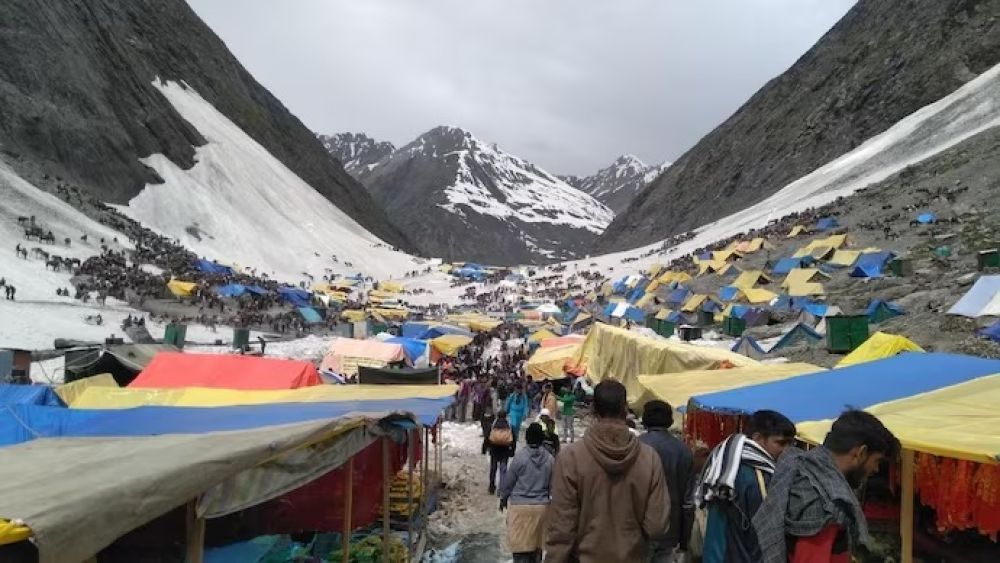

The Amarnath Yatra is a revered pilgrimage for Hindus to the sacred Amarnath Temple in Jammu and Kashmir, India. The Yatra typically takes place from late June to August, coinciding with the Shravan month in the Hindu calendar. Pilgrims trek challenging heights to reach the Amarnath Cave, which is situated at an altitude of 3,888 meters (12,756 ft) above sea level, to worship the ice stalagmite Lingam, a representation of Lord Shiva.
The journey to Amarnath begins from two primary base camps:
The camps provide facilities such as tents, food, medical aid, and ensure a measure of safety and comfort for the thousands of pilgrims undertaking the journey. The government and various organizations set up temporary amenities to accommodate the pilgrims every year during the Yatra season.
The revered Amarnath Temple is one of the most important pilgrimage sites for Hindus. According to legend, this is the cave where Lord Shiva explained the secret of life and eternity to his divine consort, Goddess Parvati. Every year, an ice stalagmite forms within the cave which resembles the Shiva Lingam and is worshipped by the devotees. The Yatra holds immense religious significance and attracts pilgrims from across the world.
Access to the Amarnath Cave is regulated due to its extreme altitude and the harsh environmental conditions, which include the risk of avalanches and sudden weather changes. The Yatra is a blend of devotion and an adventure, testing the pilgrims' endurance and faith as they traverse steep slopes, rocky terrains, and cross rivers to reach their divine destination.
Tourism in Kashmir has a deep and rich history, often referred to as "Paradise on Earth" for its breathtaking beauty. The tourism history of Kashmir can be traced back to the Mughal era when emperors would retreat to the valley's cool climate to escape the hot summers of the Indian plains. They developed gardens like Shalimar and Nishat that continue to be major attractions today.
In the British colonial period, Kashmir became a popular destination for British officials and elite seeking respite from the summer heat. The development of tourism infrastructure during this period set the stage for the region’s growing popularity.
Post-independence, Kashmir's tourism thrived as domestic and international visitors flocked to enjoy its serene landscapes, houseboats on Dal Lake, and winter sports in Gulmarg. However, political turmoil in the late 20th century led to a decline in tourist activity.
In recent years, Kashmir has seen a surge in tourism once again. The latest tourism trends in the region showcase an increase in adventure tourism, cultural tourism, and eco-tourism. The government and local businesses focus on sustainable practices to preserve the pristine environment, while adventure enthusiasts explore trekking, skiing, and other outdoor activities.
The advent of social media has also played a significant role in the resurgence of Kashmir’s tourism. Breathtaking images and travel stories circulating online have incited a new generation of travelers to visit and discover the region's charm for themselves.
Tourism remains a critical industry for Kashmir's economy, and ongoing peace efforts aspire to further boost the sector. The perpetual allure of the Himalayas, the warmth of the Kashmiri people, and the serenity of its lakes and gardens continue to captivate the hearts of travelers worldwide.